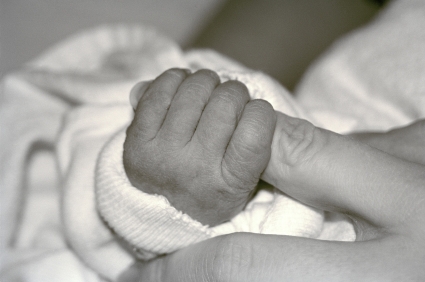
There is a popular saying that “there are no atheists in the foxhole.” The saying originated from the recognition that when we are in a difficult situation even the nonreligious are often quick to seek out assistance from a Heavenly Source. Of course, it’s not just foxholes where these prayers of petition are made. In circumstances that are much less dangerous many of us are quick to ask God to change things so that we may benefit.
Unfortunately, many people are discouraged when their prayers for new circumstances seemingly fall on deaf ears. Whether it’s a wayward child, a lack of employment or the illness of a loved one, we plead for God to change things, and yet the situation remains the same. This is true even in the seemingly mundane trials of life – those admittedly minor inconveniences that can cause a disproportionate amount of stress in our days. We want God to jump in and fix our problem, and while we recognize that He is perfectly capable of doing so, often He does not.
What I’ve recently learned is that perhaps my prayer for a quick fix is insufficient. This isn’t to say that God doesn’t answer it because it doesn’t meet some type of prescribed standard, but instead that I’m only looking at the situation from a partial perspective. From my vantage point the way that the situation becomes better is for God to change it. From His viewpoint, it may be better still to instead provide me with what I need in order to walk through the difficulty and glorify Him regardless. In other words – it is proper that I ask God to intervene on my behalf – and as a loving Father He often graciously grants my request (Luke 11:5-13). But instead of only asking for the circumstance to change, it may be wise for me to ask that if it does not, that He gives me the grace to walk through it in a manner that pleases Him.
Adding this addendum to my petition may seem insignificant, but it accomplishes at least two things. First, it reminds me of the fact that I need to trust God with the decision of whether or not the difficulty that I’m facing should be obliterated. He may, in His infinite wisdom, decide that my good and His glory are better served not by removing me from the challenging situation, but by me remaining in it. Secondly, adding this addition to my request serves as recognition that if things don’t change, this doesn’t give me free reign to complain or otherwise gripe about the difficulty I’m facing. Instead, God is willing to graciously grant me something else – the grace I need to glorify Him through it. God doesn’t leave us in challenging circumstances because of indifference; through them, He desires to accomplish something good.
It’s easy to ask God to remove the bad things from our lives. We are less inclined to ask Him to grant us grace to walk through the trials in a manner that is worthy of being called His child. Yet as we do so, not only may we view our circumstances a little more from a Heavenly perspective, but we will likely bring Him more glory and acclaim – whether the trials are removed or whether they are not.





